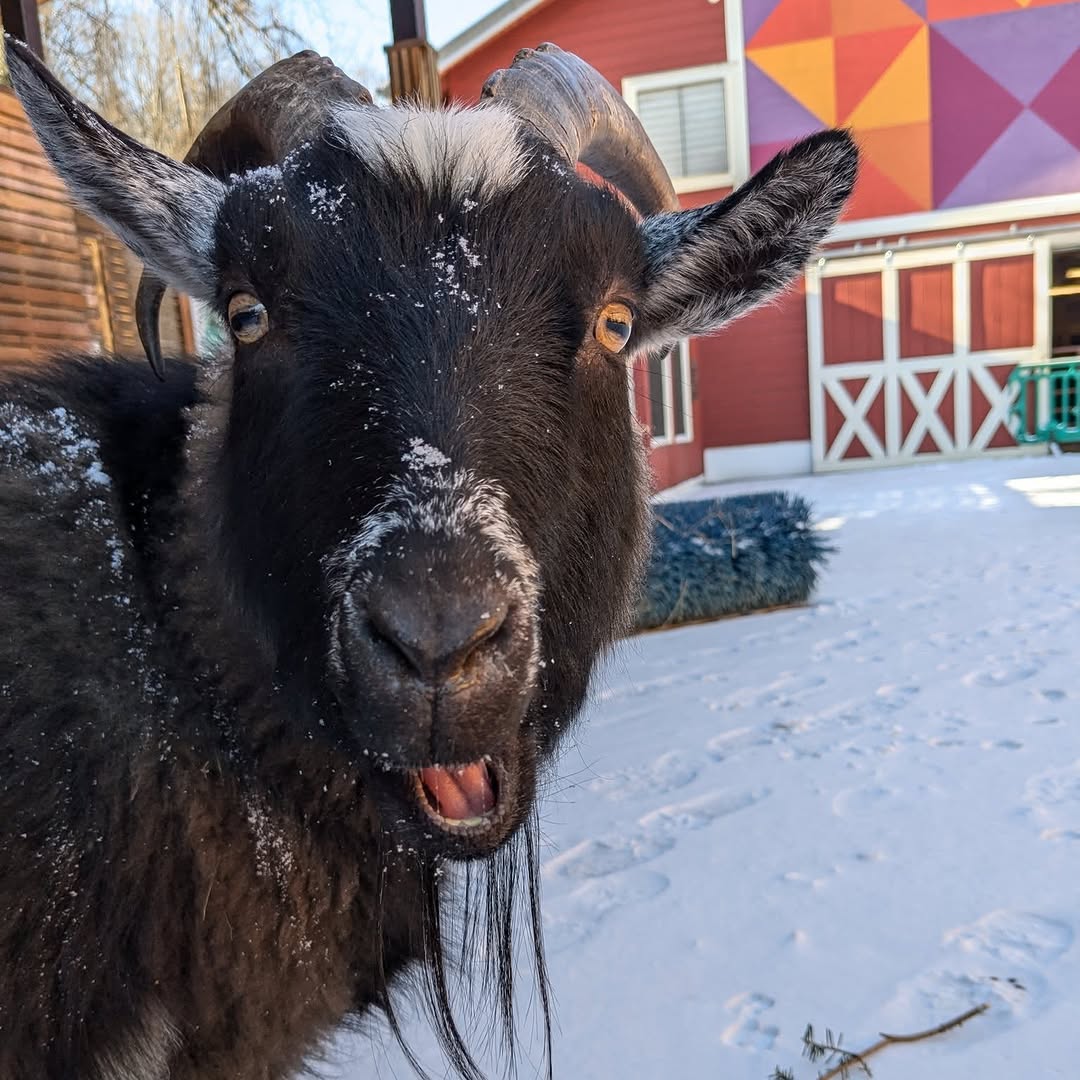- Impact of winter weather on animal behavior and welfare
- Innovative husbandry techniques by animal care teams during extreme weather
- Role of enriched habitats in enhancing animal well-being
- Profiles of specific animals mentioned, including behavioral insights
- The importance of committed animal care teams for wildlife conservation
The impact of winter weather on animal behavior and welfare is a subject that captures the attention of both zoologists and casual observers. When temperatures drop and snow blankets the earth, animals exhibit a range of behaviors in response to these changing conditions. From physiological adaptations to behavioral shifts, each species has a unique way of confronting the cold. For animals like the American pygmy goat, cold weather can lead to increased energy levels as they navigate snowy terrains, engaging in playful activities that provide both exercise and mental stimulation. These behavioral changes are not just entertaining; they play a vital role in maintaining the animals’ health during the colder months.
Meanwhile, creatures like the cougars Noa and Hayla demonstrate behavioral adaptations of their own. Cougars, being natural predators, may experience heightened alertness in winter as they adjust their hunting habits to the conditions at hand. Snow can either hinder or aid their pursuit of prey, depending on the depth and texture of the precipitation. With regard to their welfare, providing an environment that mimics the challenges and stimuli of the wild is crucial. This leads us to the subject of husbandry and the role of the animal care team.
Innovative husbandry techniques are essential, especially during extreme weather. Snow and low temperatures can make regular care routines challenging, but these situations also offer opportunities for creativity. At the Nature Center, where the care team stayed overnight to ensure animal safety, strategies included bringing snow into Elvis the skunk’s indoor habitat, presenting an unexpected yet engaging environment for him to explore. Such enrichment opportunities encourage natural behaviors, allowing animals to engage with their environments in ways that promote mental and physical health. This innovative approach illustrates how committed professionals adapt care practices to meet the situational demands presented by winter weather.
Enriching habitats plays a major role in promoting animal welfare within captive environments. For species like raccoons Grace and Frankie, tactile and sensory stimulation are key components of their care. Snow is a novel variable in their habitat, prompting them to exhibit foraging and manipulative behaviors similar to those they would in the wild. The presence of snow creates a unique plethora of textures and experiences for these animals to explore, which is crucial for their psychological well-being.
The enriched environment also benefits American pygmy goats like Bryan. Climbing rocks, navigating varying terrains, and engaging with features like snow all contribute to physical fitness and interactive play, essential for maintaining the goats’ overall health and preventing behavior-related issues that may arise in the absence of stimulating environments. Through these carefully designed environments, animal care professionals provide opportunities for animals to engage with their surroundings in fulfilling ways, reinforcing the critical nature of habitat enrichment.
Profiles of specific animals mentioned offer an in-depth look into the complexities of their care and engagement within the settings they occupy. Elvis the skunk, for example, is a testament to the adaptability of enrichment practices. With snow generously supplied to his indoor habitat, Elvis demonstrates behaviors consistent with his natural environment, such as burrowing and investigating. These activities are facilitated by the ingenuity of the care team, who continually seek to provide animals with the resources needed to engage in instinctual behaviors despite the challenges of captivity.
The cougars Noa and Hayla provide another perspective. Their habitat must equate the vast, rugged terrain they would encounter in the wild, promoting behaviors such as stalking and territorial patrolling, which are inherent to their species. Each animal thus reflects not only their unique adaptations but also the immense planning and effort devoted to their care.
The importance of dedicated animal care teams cannot be overstated. These professionals are the backbone of wildlife conservation efforts in zoological settings, ensuring that the animals in their charge receive comprehensive care tailored to both species-specific and individual needs. By staying overnight, the team at the Nature Center demonstrated a profound commitment to their roles, guaranteeing that animals like raccoons Grace and Frankie, skunk Elvis, and cougars Noa and Hayla continue to thrive despite the constraints of their environment.
In wildlife conservation and zoological management, the role of human caretakers extends beyond basic needs; it encompasses the enhancement of life quality for the animals. The actions of these caretakers directly impact the animals’ health and well-being, establishing a benchmark for best practices in the industry. As our understanding of animal care and welfare continues to evolve, the experiences and insights gained from these dedicated caretakers during winter conditions provide valuable contributions to the broader field of zoology and conservation.
*****
Source Description
Snow doubt our animals were all shown some extra love during last week’s winter weather, but who do you think had the most fun? Pictured here are American pygmy goat Bryan, raccoons Grace & Frankie with their keeper Lori, skunk Elvis and cougars Noa & Hayla.
To prepare for the inclement weather, members of our animal care team stayed overnight at the Nature Center! In addition to caring for the animals outdoors, they also brought in some snow for Elvis to enjoy inside his habitat. We’re so lucky to have such a devoted team looking after our animals!


